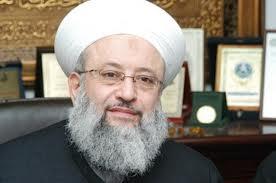
RNA – During his Friday prayers’ sermon in the Lebanese city of Sidon, Shaykh Maher Hammoud, the general-secretary of Lebanon’s Union of Scholars in Support of the Islamic Resistance, referred to the hundredth anniversary of the genocide of Armenians during the last few years of the Ottoman Empire, saying it should be noted that Islam is not responsible for this crime.
“It is well known to all parties that during the Ottoman era, there was unity and progress among all ethnic and religious groups. The Republic of Turkey that [Mustafa Kemal] Atatürk established, abandoned all Islamic imagery and representations of the Ottoman Empire.”
The Lebanese Sunni scholar reminded those believers gathered at Sidon’s al-Quds Mosque of a few of the changes that Atatürk made in Turkey, saying that the call to prayer was broadcasted in Turkish instead of Arabic for many years and mentioned the long-time ban on the wearing of the turban and veil in public places.
He added that that Islamic groups do not have to be associated with the commemoration of the centennial of the Armenian Genocide, but it should be noted that the murder of all ethnic groups should be condemned.
Shaykh Hammoud stated that no one should be allowed to support the crimes that occurred during the Ottoman period, even if the crimes were carried out by those close [in religion] to us.
He rejected the claims about the Erdoğan’s government being Islamic, saying Erdoğan’s policies are in no way Islamic. Even if these claims were considerable four years ago, today and after four years of the role of the Turkish government in the destruction of Syria, combined with the Turkish government’s support of Takfiri terrorists, these claims are not acceptable anymore.
Every year on April 24, Armenians around the world commemorate the victims of the Armenian Genocide which is the day when thousands of the Armenian community leaders of Constantinople (now Istanbul) were deported and mostly executed.
Turkey strongly denies that the Armenian Genocide occurred, contending that the deaths of Armenians took place in an era in when hundreds of thousands were killed on both sides as Ottoman forces battled the Russian empire for control of Anatolia. They also dispute the numbers of Armenians killed during this tumultuous era.
The 100th anniversary of the Armenian genocide has also led to a governmental and societal split in Lebanon, which has a significant Armenian Christian population.
111/112